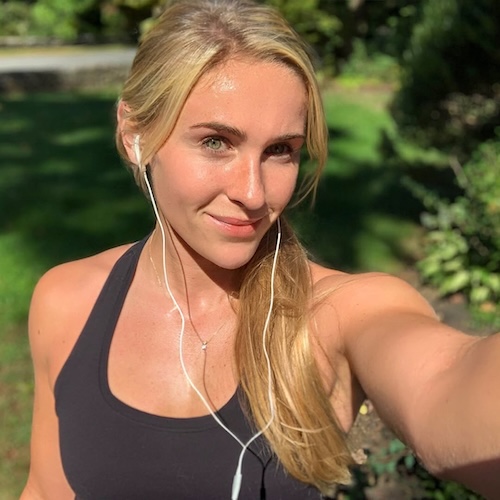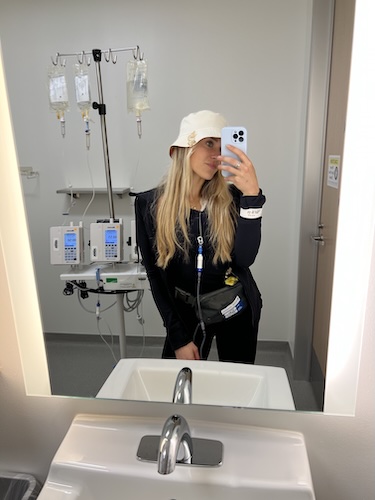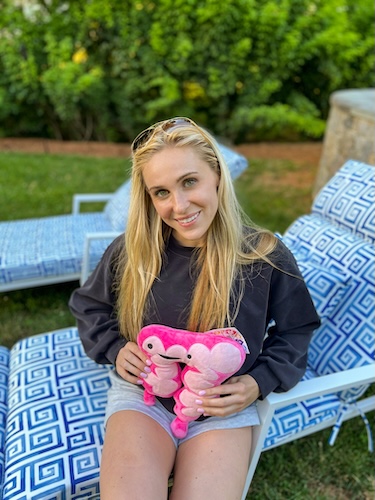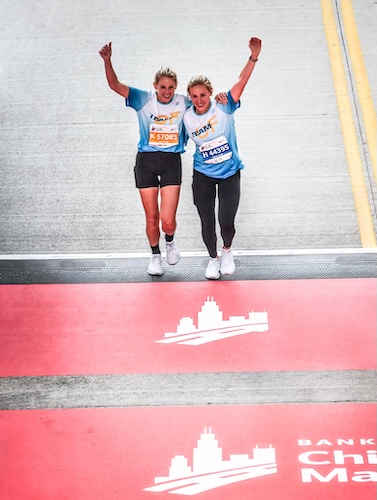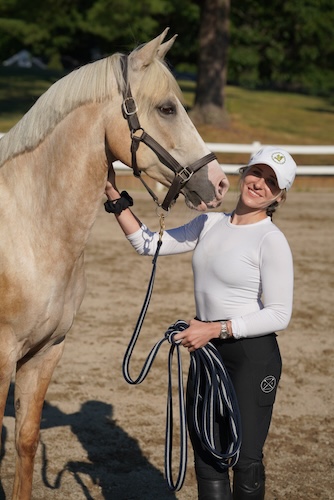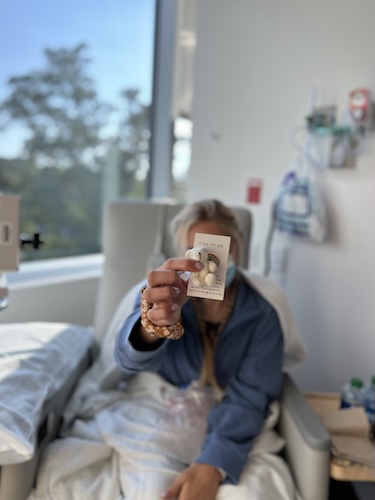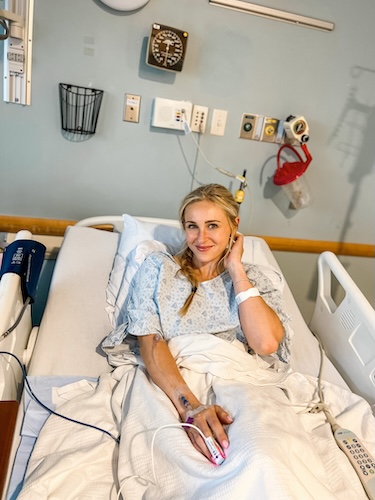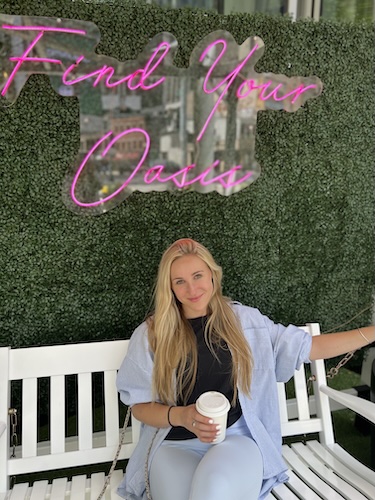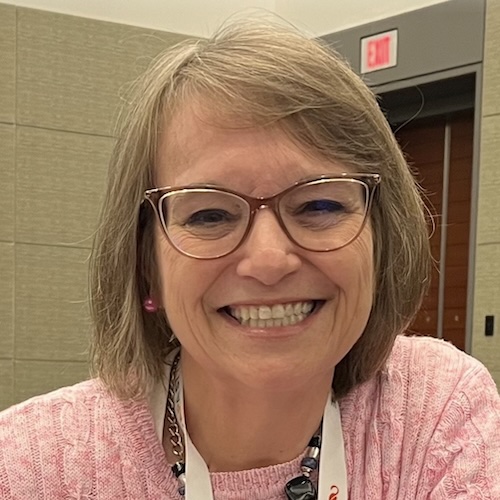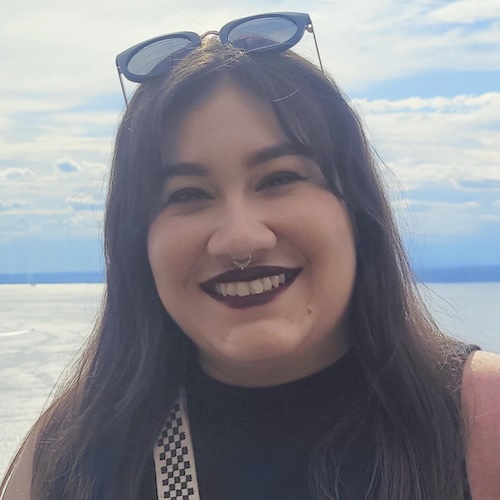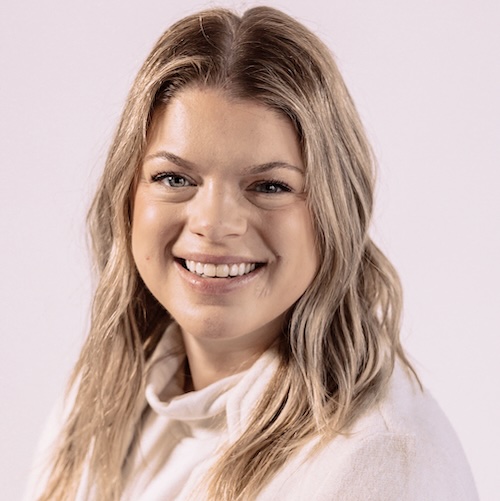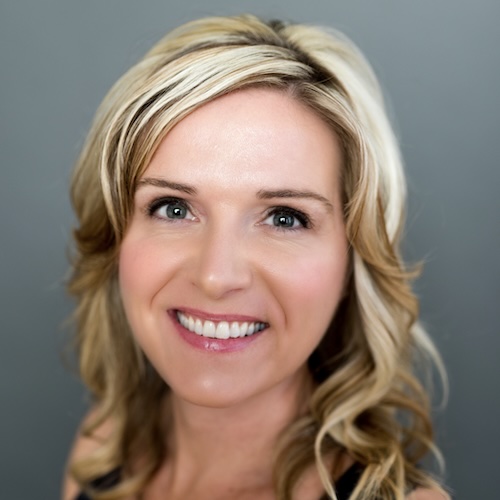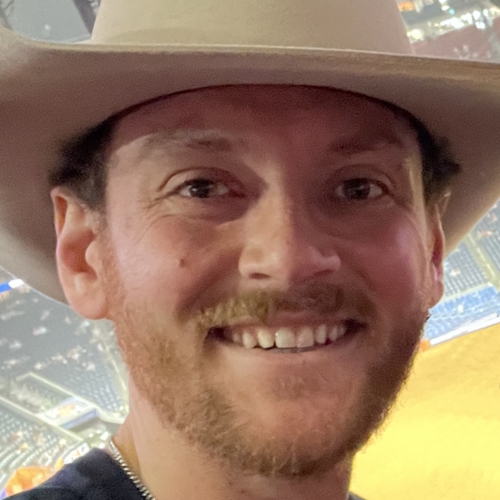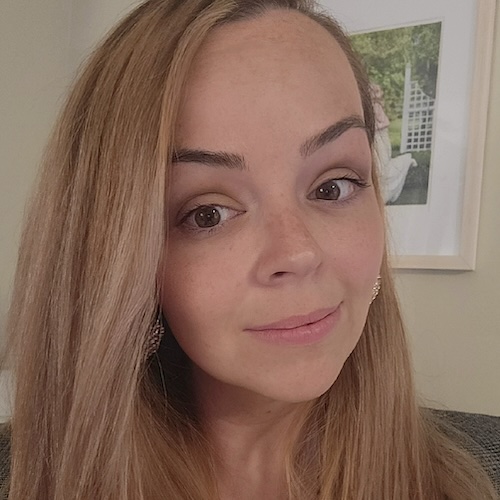Faith and Fitness Helped Nicole Face Stage 3 Colon Cancer
Nicole was only 27 when she found out she had stage 3 colon cancer. It all began with typical stomach pain, which she’d experienced previously. This time, though, the pain grew sharper, and she could point to a spot on her lower left side where it was focused. When her bathroom habits became inconsistent and dark blood appeared in her stool, she knew it was time to run to a doctor. She exhausted various treatments with her primary care physician, and a gastroenterologist later on confirmed via colonoscopy that a tumor was causing the blockage.
Interviewed by: Taylor Scheib
Edited by: Chris Sanchez
Hearing the phrase “stage 3 colon cancer” was both disconcerting and surreal, but Nicole faced it head-on. Her faith helped her deal with this unexpected diagnosis. Realizing that this was entirely beyond her control and trusting that there was a plan also helped her ground herself and find peace in the middle of the shock. Her mother, who accompanied her to appointments, was shaken, but Nicole focused on what she needed to do next.
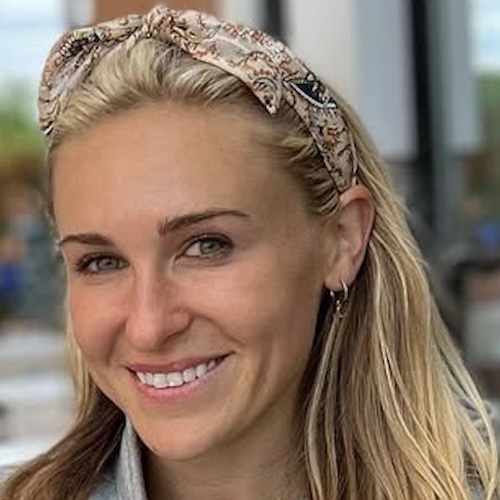
Nicole underwent surgery and chemotherapy. Her surgeon performed an impressive procedure, removing the tumor and 40 lymph nodes. Her gastroenterologist guided her through six months of challenging chemo sessions. Nicole found ways to manage chemo’s tough side effects. She discovered that icing her hands and feet helped reduce nerve damage, and despite having a sore throat from the medication, she made sure to eat nutritious foods whenever possible.
After her stage 3 colon cancer treatment, Nicole wholeheartedly embraced a healthier lifestyle. She admits that her nutrition wasn’t ideal before the diagnosis. Now, she focuses on balanced meals rich in fruits, vegetables, and plenty of water. Fitness became a cornerstone of her new routine. Remarkably, she ran a marathon just eight months after finishing her chemo regimen.
Nicole continues to be rooted in faith. She believes in the power of being present and surrounding herself with positivity. She encourages everyone, not just cancer patients, to reflect on what truly matters, to cherish their health, and to make small, impactful changes. Whether it’s growing a few vegetables, choosing a salad over fast food, or simply finding joy in little things, it all adds up.
Watch Nicole’s video and scroll down to browse her interview transcript for more on:
- The subtle symptoms Nicole almost ignored and what saved her life
- How she reclaimed her health after stage 3 colon cancer
- Why faith and eagerness to reinvent herself became Nicole’s pillars after her cancer diagnosis
- Nicole’s nutrition wake-up call: What she wishes she’d known (and done) earlier
- The small but meaningful changes that have helped her reorient her life
- Name: Nicole S.
- Age at Diagnosis:
- 27
- Diagnosis:
- Colon Cancer
- Staging:
- Stage 3
- Symptoms:
- Dull lower abdominal pain that sharpened and was focused on the lower left side
- Appearance of dark blood in stool
- Difficulty retaining food due to near-complete blockage of sigmoid colon
- Treatments:
- Surgery: colectomy
- Chemotherapy
This interview has been edited for clarity and length. This is not medical advice. Please consult with your healthcare provider to make informed treatment decisions.
The views and opinions expressed in this interview do not necessarily reflect those of The Patient Story.
Hi. I’m Nicole
I’m Nicole. I was diagnosed in 2022 with stage three colon cancer, and I was 27 at the time.
When something first felt “off”
My initial symptoms were very normal. It started with stomach pain, and it got progressively worse. Now I’ve had lots of issues growing up. So for me, it’s relatively normal. However, the pain began to increase, and it was almost as if I could point to the spot where I felt the pain, which was my Lower GI. It was on my left side, and I knew exactly where I was experiencing the pain. I could point to it when someone asked, and what made me want to go see the doctor was when I was having issues going to the bathroom, and it wasn’t consistent.
So I went to the doctor. We tried everything. I was convinced that it was a blockage, but it wasn’t a blockage in the sense that I thought. I thought there was some kind of food blocking the way, and that stool softener would help, and all these other medications would help. Well, we exhausted the list, my primary care doctor and I, and then I went to the gastroenterologist.
Right before they had called it was a day or two before, and I had dark blood in my stool, which was an indicator that something was going on, and many people can think hemorrhoids or something like that when there’s blood in your stool, but mine was darker blood. I think that’s an important distinguishing feature.
The moment everything changed
I went into my appointment sooner than I thought, and it was a blessing, such a big blessing, because I don’t know if it would have been stage four by August or what would have happened, but I went in, and they immediately got me in for a colonoscopy.
I woke up from my colonoscopy. Everything went well, and I was told that I had a tumor that was indeed the blockage that I suspected. So I only had a few millimeters for food to get by.
So that’s really interesting to me. I never thought that was a possibility for someone like me, but I will say that I had never really focused on my diet. I had always eaten. I mean, I still eat sort of normally, the somewhat standard American diet, but I have incorporated more vegetables and fruits into my day-to-day, and I think that makes a big difference. More water. Just doing a better job at my nutrition because my nutrition was not good at all before.
I really would have benefited from seeing someone like a nutritionist before I even knew I had cancer. So, I would recommend that for anyone who is having any GI issues or stomach issues, just go talk to someone who’s a professional and have them evaluate your diet, because it’s actually such a significant part of your lifestyle, what you put into your body. So, that was something that I started to focus on after my diagnosis, but it wasn’t that simple and straightforward.
I want to mention that it was in my sigmoid colon, which is actually a very common location for colon cancer.
Because the word cancer had already been thrown around, I think I was just ready for it at that point. I was like, okay, what’s next? And if I had been afraid and too shy or not willing to take that appointment that came up early. Then I think I would have been in a more difficult position, but I think the timing of things was very helpful, and being faithful and trusting that there is a plan that’s greater than yourself. And this is maybe a little bit out of my control. In that way, I was ready for those words, and, yes, it’s a shock initially. I think my mom was more shocked. She went to the appointment with me because you need someone to drive you home. So, she was more shocked, but I think I was ready.
What my treatment plan looked like
Well, my stage three colon cancer had spread to 12 lymph nodes, which is a good amount of lymph nodes. So it had spread, and while my surgeon was amazing. I actually do want to mention my surgeon and my gastroenterologist because they were so incredible.
My gastro oncologist is at Tufts, and she is the surgeon who did my surgery. Her name is Doctor Lillian Chen, and she was so incredible. Specializes in smaller surgeries. Trying to think about arthroscopic surgery, and she was still able to get 40. Not only fix my colon, right, and take out the tumor, but she also took out 40 lymph nodes, which is an incredible amount, and as many as she could around the area near my tumor. So I love her so much. She has an incredible bedside manner.
My gastroenterologist is actually from my hometown, and she did recommend the gold standard, which is first the surgery and then the chemotherapy part. For six months, I did a mixture of two chemotherapy drugs. She was very careful with me when my platelets got low. I highly recommend her because she did such a great job managing that, even though I think that the gold standard of treatment is a tough path. It’s not an easy path, but I loved her too. And her name is Doctor Kim Perez, and she is at Dana-Farber, not Tufts. So, I was treated at Dana-Farber Chestnut Hill.
I did 12 rounds. I think that the chemo part was the hardest because I wasn’t able to eat very healthy. I tried my best to drink healthy drinks, but one of the chemo drugs makes your throat feel like a tiny straw. So, it was really hard to have anything cold, like a smoothie or fresh-pressed drink, because it hurt to swallow, but I still did anyway. I was like, I got to get this in. I need the nutrition. That part was the hardest. I was so interested in ways to game the system and not get the nerve damage, and just get the most out of it. So during chemo, I would ice my hands and I would ice my feet, and I personally think it helped me. I was able to run a marathon eight months after treatment. So, if I could do that, I think that the icing worked for me.
I think it’s looked like an entirely different journey on its own. I didn’t have any really lasting effects from the surgery. I feel like the surgery improved my life, but the chemo has had lasting effects on me.
What survivorship means to me
So, survivorship to me has looked like managing those things that came from chemotherapy and making sure that I’m doing my best job to be a healthier version of myself, and think more positively, and surround myself with people who care about me and pour myself into a passion outside of work. It’s looked like reinventing myself, which is fun. I also would have never had this opportunity to reflect so much if it weren’t for experiencing such a life-changing diagnosis and treatment, and I would highly recommend to anyone listening who maybe doesn’t have a cancer diagnosis to think about this as the check-in that you needed to reevaluate and reflect. Even if you haven’t gone through cancer, to think about what’s important to you, because that’s really been top of my mind, is what’s important to me. What do I want to get out of the rest of my life? Because it’s a lot more fragile than I thought.
How I reprioritized my health
Your health is the most important thing in your life. You know, love, I would say, is the ultimate language of the universe.
However, to feel love and give love, we need to be present. And in a cancer diagnosis, you just have to be present, and your health is everything. There’s nothing else that is more important in that moment. Because you want to be here.
This is my choice. In my health, in my body. What do I want to do? I knew I wanted to continue fighting to live. It was just a whirlwind of emotions all of a sudden, and then realizing, I’m so ready to focus on just my health.
I want to encourage healthy habits to prevent such a horrible thing. Even if you do everything right, there is still a possibility that, even if you did everything right, maybe it still didn’t work. We hear that all the time with all the percentages. What is it? They told me I had a 50% chance of living beyond five years, which I took with a grain of salt, because there are so many things that go into that calculation.
Just don’t listen, drown out the voices that tell you that there isn’t a chance because there’s always a chance. And yeah, I just reframed my whole life to be around my health.
But honestly, it helped me so much in my journey. So I want to tell more people. It’s not that hard. Grow some of your own vegetables if you want. Try it out. Do something different. Or just buy a salad for lunch. It’s as simple as taking a step in the right direction, and you’ll start noticing that that change multiplies in your life. And I’ve gone. I’ve backtracked on my journey. It’s okay to fall short. It’s okay to make mistakes. It’s okay to eat bagels for a whole week. It’s okay. You can mess up.
What I want people to know
Think about just being in the present, and maybe you’re involved religiously. Maybe you’re more spiritual and not religious. You could pray. You could just think about something positive. That would be my biggest piece of advice. Go find your secret place that makes you happy and spend a little time in that place when you feel overwhelmed.

Inspired by Nicole's story?
Share your story, too!
More Colon Cancer Stories
Kristie C., Colon Cancer, Stage 4 (Metastatic)
Symptoms: None per se that she noticed; she experienced constipation and passed narrow stool, but had been experiencing constipation most of her life, and thought that these digestive issues could also have resulted from perimenopause
Treatments: Chemotherapy (including adjuvant chemotherapy), radiation therapy, ablation therapy (liver ablation), surgeries (colectomy, temporary ileostomy, ileostomy reversal, scheduled liver resection)
Briana H., Colorectal Cancer, Stage 3
Symptoms: Periods of constipation initially lasting one week and then extending to two weeks, nausea, pain in lower left abdomen, lack of appetite, vomiting and inability to keep fluids down
Treatments: Surgeries (colon resection, tumor removal, colostomy placement, colostomy reversal), chemotherapy
Kailee O., Colorectal Cancer, Stage 4 (Metastatic)
Symptoms: Sensitive stomach sometimes leading to vomiting after eating, bleeding during bowel movements, persistent fatigue, back pain, abdominal pain, anemia, significant symptom flare-up during second pregnancy
Treatments: Surgery (colectomy), chemotherapy, targeted therapy
Starr S., Colon Cancer, Stage 4 (Metastatic)
Symptom: Abdominal pain
Treatments: Chemotherapy, surgeries (colectomy, hepatectomy, lymphadenectomy), targeted therapy
Jackson L., BRAF Mutation Colon Cancer, Stage 4
Symptoms: Severe stomach pain, fatigue, lack of motivation, anemia, blood in stool, thinning stool
Treatments: Surgeries (emergency bowel obstruction surgery with temporary colostomy, possibility of HIPEC in 2026), chemotherapy, immunotherapy
Heather C., Colon Cancer, Stage 4 (Metastatic)
Symptoms: Severe bloating, indigestion, vomiting, rectal bleeding
Treatments: Chemotherapy, surgery (liver transplant, upcoming)
